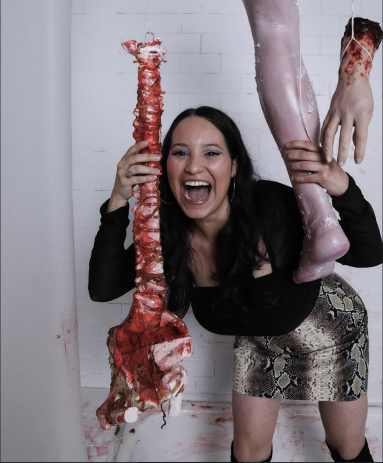15 Horror Movies That Are Surprisingly Feminist
Young women in their sorority house being hunted down one by one by a deranged killer with a predilection for making lewd phone calls—sounds exploitative, right? Wrong.
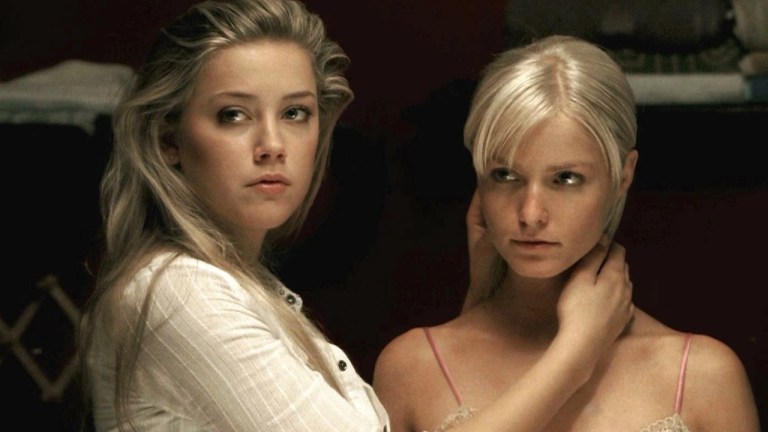
Women have always been at the center of horror. From damsels in distress, they’ve evolved into strong-willed badass heroines, and even iconic female villains audiences can’t help but be fascinated with. The genre has often been criticized for being misogynistic—there’s a long history of hypersexualization and objectification of female characters, explicit violence and brutality directed at them, misogynistic tropes, and female characters with little to no agency. As much as horror has positioned women as victims, it has also championed them as survivors. The genre features a wide range of female-driven stories that challenge views held in a male-dominated world. Being that horror is the most subversive and progressive genre—one imbued with sociopolitical motifs—the genre has extended into feminist filmmaking and storytelling.
Fans are familiar with renowned feminist horror films—The Stepford Wives (1975), Ginger Snaps (2002), Jennifer’s Body (2009), A Girl Walks Home Alone at Night (2014), The Invisible Man (2020)—and horror movies about female rage. This list contains horror movies that are unexpectedly feminist because they may not be outwardly loud in the subject, revolve around larger themes, were created at a time it was taboo to discuss certain topics, and more.
Discover the best surprisingly feminist horror movies on the list below:
Dracula’s Daughter (1936)
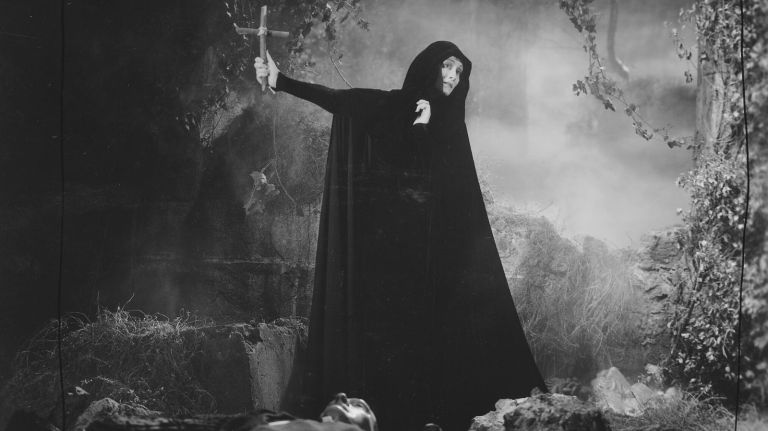
Dracula’s Daughter, carried by the performance of Gloria Holden, features cinema’s earliest example of a complex, powerful woman—and the original onscreen female vampire. Countess Marya Zaleska holds strengths and abilities above those of mortal men, making her a direct threat to the patriarchy. The only thing mightier than Countess Zaleska, who can preternaturally bend others to her will, is death. For this—and for sexually deviating from patriarchal, puritanical standards—she ends up being punished by men.
There’s heavy queer subtext throughout the picture. Her interactions with women are slow and seductive, with a subtle undercurrent of passion. Those she has with men lack the same tension and emotion. “I can live a normal life now, think normal things,” she says after destroying Dracula’s corpse and believing herself rid of the curse, implying she’ll be able to abide by heterosexual norms and be accepted by heteronormative society. The vampiric urges she struggles to fight translate into her sapphic nature—not so subtle implications in the infamous painting scene with Lili (Nan Grey). Despite its faults, which can be blamed on the Hays Code, Dracula’s Daughter was ahead of its time, making history as the first lesbian vampire film.
Cat People (1942)
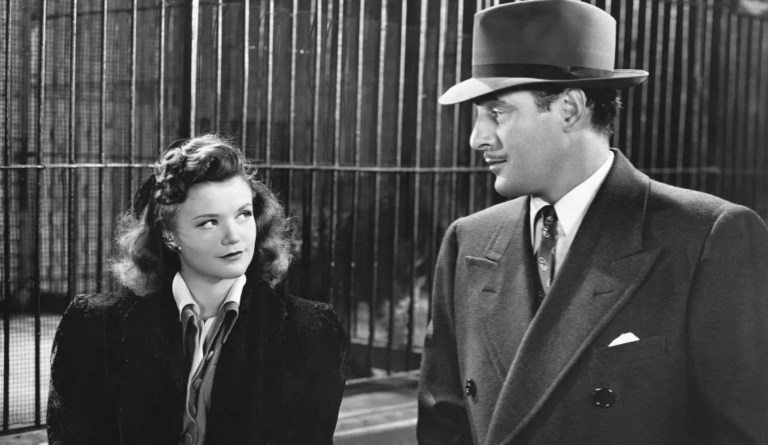
Before Carrie White, there was Irena Dubrovna (Simone Simon), both victim and monster. The NYC-based Serbian immigrant and fashion illustrator believes she’s descended from a cursed lineage of metamorphosed women—an ancient tribe of Cat People who betrayed God before turning. She fears her feline transformation into a lethal panther, should she become aroused or enraged. It causes problems in her new, unconsummated marriage to disbelieving husband Oliver (Kent Smith). Cat People is about a lot of things—America’s treatment of “outsiders,” immigrant assimilation, queerness, sexual repression, fear of intimacy. Through a feminist lens, it’s the first-ever picture to take a woman’s sexual desires and autonomy seriously, functioning as an allegory for society’s fear of female sexuality—surprising at a time when it was taboo for women to recognize their own sexual impulses.
Irena’s story is that of every woman in this moralistic society that expects you to be modest, but resents your refusal to be sexual gratification for men. Her struggle and, ultimately, her ending depict how commonplace it is for women to be forced to turn against themselves in this patriarchal world. Additionally, the film makes commentary on the objectification and sexualization of women, which Irena experiences by both her husband and psychiatrist, and emphasizes consent.
Carnival of Souls (1962)
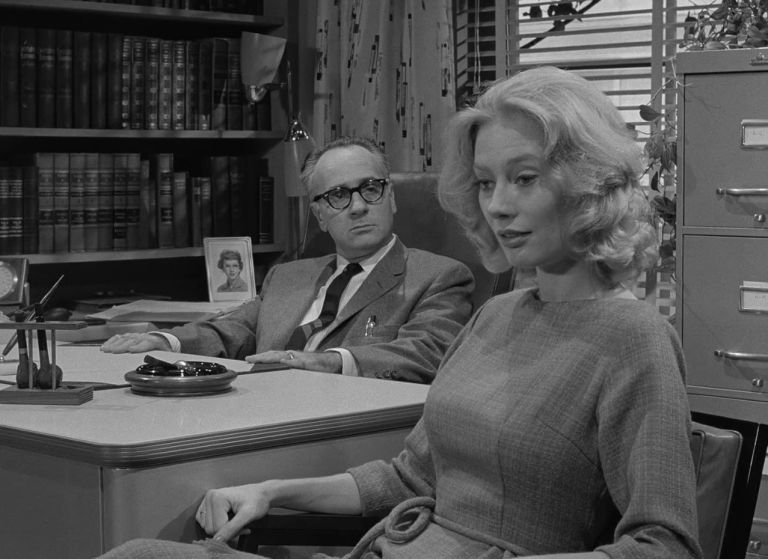
A drag race ends with a carful of young women plunging off a bridge into a lake. Mary Henry (Candace Hilligloss) later inexplicably emerges as the lone survivor, with no memory of what happened. She follows through with her already laid-out plans, leaving Kansas for Utah and taking a job as a church organist. A ghoulish-faced figure, The Man, has followed her on her journey and continues to appear before her in her new home. House of Psychotic Women author Kier-La Janisse describes Herk Harvey’s masterpiece as the “pioneer of the purgatorial horror subgenre.”
Mary is a strong-willed, independent young woman who represents emerging feminism and sexual liberation in the face of patriarchy. Through her character, who has no desire for a boyfriend, an argument is made in favor of women’s independence. Mary also makes it clear that to her “church is nothing but a place of business.” The men who admonish her religious beliefs, or lack thereof, are used by the film to criticize blind faith in organized religion. There’s an emphasis placed on religious hypocrisy when she’s subjected to the gaze of her new boss. John (Sidney Berger), the sleazy creep who sexualizes Mary throughout the movie, is a stand-in for predatory male behavior and the male gaze, as is The Man. Furthermore, the picture destigmatized mental illness and therapy during a time the subjects were still taboo.
Black Christmas (1974)
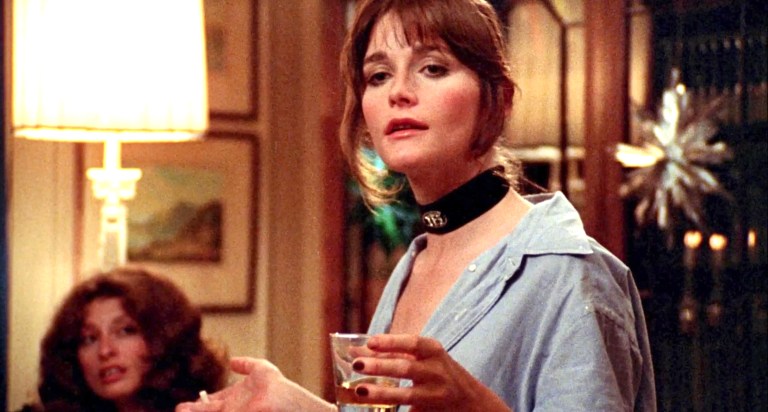
Young women in their sorority house being hunted down one by one by a deranged killer with a predilection for making lewd phone calls—sounds exploitative, right? Wrong. Bob Clark’s Black Christmas laid the foundation for the modern slasher, and to this day, the holiday horror remains one of the most expressly feminist in the subgenre. Its female characters aren’t merely depicted as damsels or victims, but are fleshed out—some into capable, strong women. Among its themes are toxic masculinity, gender equality, misogyny, and reproductive freedom. The movie also has one of the most memorable final girls to ever appear on screen.
Jess Bradford, played sublimely by Olivia Hussey, is an ambitious, intelligent, and self-assured young woman who makes it clear she’s capable of making decisions of her own. Not only is she being targeted by the killer, but she’s dealing with a controlling boyfriend who tries to exert ownership over her body and will over her life. Jess is pregnant and plans to terminate, a choice her boyfriend isn’t too happy with, but that the film makes clear he has no right or say in. Black Christmas openly discussed abortion at a time it was taboo. It’s worth noting that while Jess may be the OG final girl, she’s also a complete subversion of what the trope would later become.
Alien (1979)
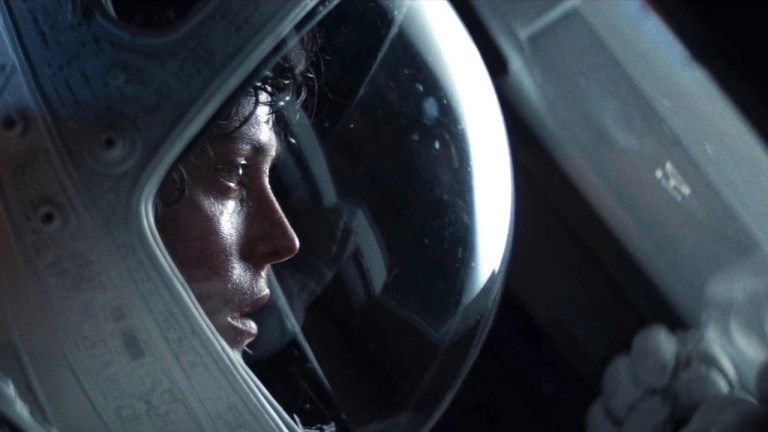
Alien gifted the world one of cinema’s most formidable warriors, helping female protagonists break through as respected heroes in their own right. Before the indomitable Ellen Ripley, played iconically by Sigourney Weaver, women in sci-fi were often reduced to objectified eye candy or damsels in distress. Ripley isn’t defined by her sexuality or male counterparts, but by her character. She’s resourceful, strong, determined, and independent. Instead of succumbing to fear, she puts up a fight and acts as her own protector. As the lone survivor of her crew, she defied traditional gender norms in film.
Despite some gendered moments, like Ripley’s infamous underwear, Alien is largely hailed as a feminist work of art, and not just for its groundbreaking heroine. The film offers sophisticated metaphors for forced pregnancy, sexual assault, and the resulting trauma. It’s Kane (John Hurt) who the Facehugger attacks, subdues, and impregnates. That such an act of violence is directed at a man puts the male audience in women’s shoes, who have been violated and had pregnancy forcefully imposed on them since the beginning of time.
All the Boys Love Mandy Lane (2006)
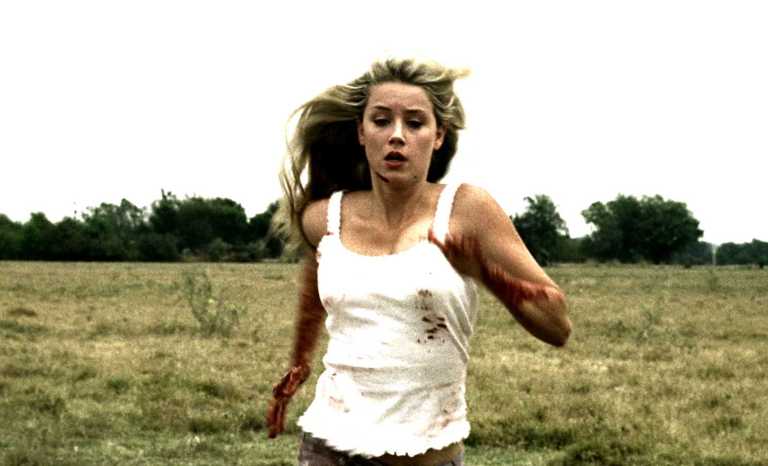
All the Boys Love Mandy Lane has a deceptively simple premise: a group of teens are hunted by a killer while on a weekend getaway of debauchery on a ranch. One would expect all the misogynistic workings that come from exploitative slashers, particularly one starring a painfully beautiful woman, but there’s so much more below the surface. This is a movie about the male gaze and men’s sense of entitlement. All the boys desire the titular character (Amber Heard), but none of them actually know her, or care to. The male characters in the movie have toxic, objectifying attitudes towards women, namely Mandy, which the movie condemns throughout and utilizes to create a sense of threat.
The “nerdy” girl who turned “hot” became popular purely as a result of being sexualized. Mandy wouldn’t be around this crowd, let alone invited to the party, if she hadn’t become the object of obsession of every teen boy there who wants to possess her. She’s a trophy to be won. Throughout the film, each one comes on to her or tries to force himself on her. It’s later revealed (spoiler warning) that not only did her male peers never truly know Mandy, but neither did the audience. She was allied with the killer all along, and in fact, was the mastermind. The final girl trope is subverted a second time when she kills her accomplice, who also failed to see her as a person and just idolized her. Women aren’t always victims, sometimes they’re the very thing to be feared.
It Follows (2014)
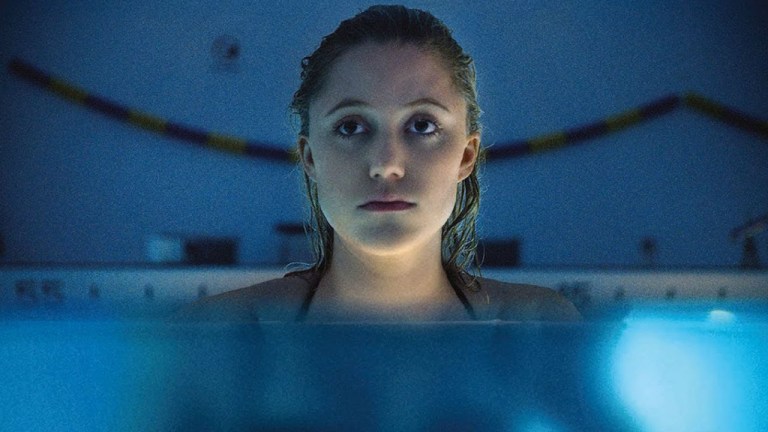
A story about a sexually transmitted curse sounds like one that would condemn sex, like so many horror movies before, but that’s not the case. It Follows subverts genre tropes surrounding female sexuality, calls attention to predatory male sexuality, and makes commentary on the violation of women by men. Jay Height (Maika Monroe) is never shamed or villainized for being sexually active, challenging the chaste final girl archetype. Although her support system helps her through her horrible ordeal, she’s not exactly a damsel—Jay is a character with agency who accepts help from those around her.
The entity that hunts her down isn’t a metaphor for an STD, but for the trauma she’s carrying as a result of her sexual encounter with Hugh (Jake Weary), which was a case of non-informed consent. Although she consented to sex with him, she had no knowledge of the curse. She didn’t agree to inherit the monster—it was forced upon her. The film alludes to sexual assault when Hugh knocks her out, when she’s dropped off home half-naked, when she’s depressed in in her room, and in many other instances. It Follows says that consenting to something doesn’t mean consenting to everything.
Nope (2022)
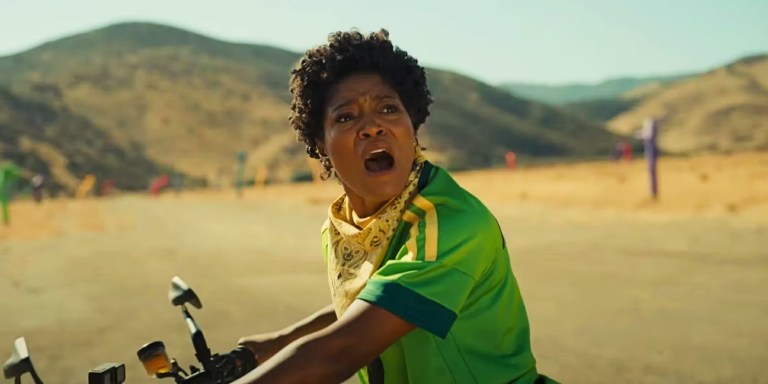
The Haywood siblings, OJ (Daniel Kaluuya) and his sister Emerald (Keke Palmer), are struggling to keep their horse training family business afloat after their father was mysteriously killed by inexplicable falling objects. As they try to get to the bottom of the strange phenomenon in the skies above their ranch, they discover something otherworldly. Jordan Peele’s alien sci-fi horror doesn’t sound like a tale of feminism, especially since the movie fails the Bechdel test. However, the film surprises with Em’s tomboyish, confident character who is never once objectified.
The magnetic Em redefines the final girl as a Black lesbian and as representation for women who are often called “too much,” particularly strong and self-assured Black women. Em is expressive and self-assured—someone misogynists would call “too loud.” She has dreams of making it big in Hollywood, and isn’t afraid to be bold and put herself out there, despite what others might think. Although it’s clear she’s never really had the space to truly be seen, she continues to be unapologetically and authentically herself. Em’s portrayal is important in a world that tells women, namely those of color, to make themselves smaller.
Barbarian (2022)
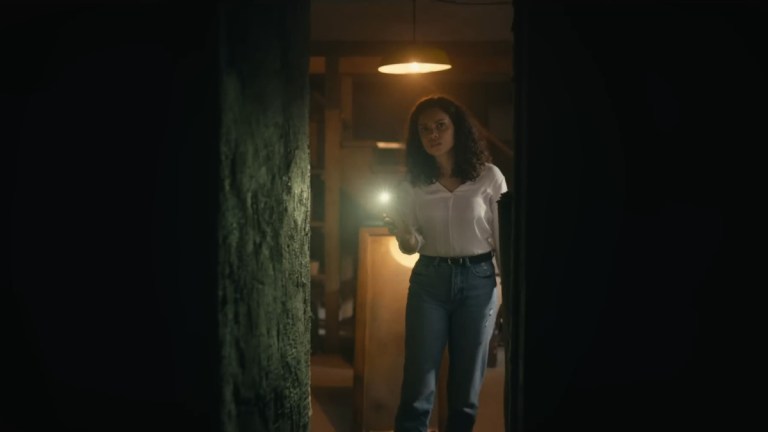
Barbarian starts off with Tess (Georgina Campbell), arriving at her rental home only to discover it’s already being occupied by a stranger, Keith (Bill Skarsgård), who’s more than willing to share the house for the night. Things then evolves into something wildly unexpected. The movie, which serves as scathing criticism of white male privilege and gendered power dynamics, is feminist from the beginning and emphasizes the importance of a woman following her intuition throughout. Tess’ initial predicament highlights the everyday dangers of being a woman and how women are forced to stay vigilant to protect themselves. Later, the story shines light on how men have the luxury of walking the world not only without caution or a care in the world, but with a sense of entitlement.
Another treat feminists can appreciate in Barbarian is its illumination of the real monsters, which isn’t the ghastly Mother, but men. AJ (Justin Long) is emblematic of how sexual predators and abusers often hide behind a charismatic persona. Near the end, when he (spoiler alert) pushes Tess of the water tower and gaslights her about it, the movie depicts how men like him aren’t capable of being reformed and any attempt at rehabilitation is purely to save face. His death is one of the most satisfying in the genre.
Longlegs (2024)
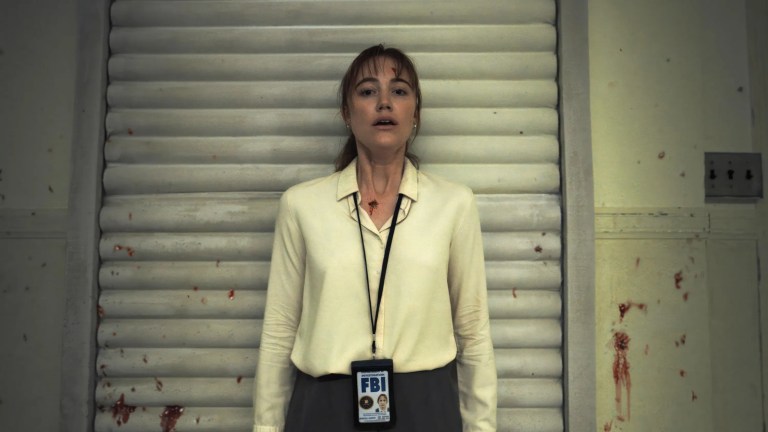
The talented Maika Monroe plays Lee Harker, an FBI agent with apparent psychic abilities who is recruited to solve a long-running case of murder-suicides. An elusive killer (Nicholas Cage) who has dubbed himself “Longlegs” always leaves a ciphered letter at the scene of the crime. Somehow, he manages to commit the murders outside of the home by manipulating the father to kill the entire family, and then himself. Each family has a daughter born on the 14th of any given month, and soon Lee discovers her own personal connection to the mystery. Beneath the Satanic and occultist themes of the movie lies a surprising feminist undercurrent that critiques the traditionalist and religious views of our patriarchal society.
Ruth Harker (Alicia Witt), a mother who falls outside of the nuclear family structure and falls susceptible to corruption, mirrors how single women have been villainized and persecuted throughout history. The dark magic inside the dolls (spoiler alert) that she helps Longlegs bring into the homes of the victims is metaphorical for patriarchal ideals. That the dolls are frozen in eternal porcelain girlhood is representative of the desirable values society has for women—docile, silent, feminine, and “pure.” When the murderous servant to Satan references “darkness” within his girl victims, he alludes to Eve’s original sin, a biblical justification used for misogyny and the demonization of women. Before killing himself in the interrogation room, he tells Lee of the “work that gets dirty as it cleans, like a mop, like a rag” on the “orders from the man downstairs,” symbolizing the violence of patriarchal religion. The man that lives downstairs from “everywheres” is emblematic of patriarchy, which permeates and darkens every aspect of our world. Much like Ruth, who brought evil into the homes of those unfortunate families, women are conditioned to perpetuate said patriarchy.
More surprisingly feminist horror movies…
Bride of Frankenstein (1935) Dr. Henry Frankenstein partners up with Dr. Pretorius (Ernest Thesiger) to create a bride for The Monster. The Universal Classic Monster movie rejected heteronormativity at a time it was the status quo. Ella Lancaster’s character of The Bride has become a feminist icon for refusing to surrender to the societal pressure of heterosexual marriage and the nuclear family.
The Haunting (1963) is based on Shirley Jackson’s classic novel and follows a group of people invited by a paranormal researcher to a haunted mansion. The movie offers feminist discourse and makes commentary on repressed sexuality, particularly Eleanor Lance’s (Julie Harris). Theodora (Claire Bloom), also known as “Theo,” is an implied lesbian character who challenges patriarchy by being a modern woman with independence, power, and complexity.
Get Out (2017) Chris (Daniel Kaluuya) accompanies his white girlfriend, Rose Armitage (Allison Williams), home to meet her parents. Her family isn’t as enlightened or well-intentioned as they portray to be, and soon he makes a terrifying discovery that threatens his life. The anti-romcom horror exposes racism in a “post-racial” America that’s not so post-racial, the deep-rooted bigotry people hide beneath a progressive veneer, and exploitation of Black bodies. Its most scathing critique, however, is that of white feminism and its complicity in perpetuating racism and racial violence.
Midsommar (2019) Dani (Florence Pugh), a young woman grieving the murder-suicide loss of her family, attends a Pagan midsummer festival on the Swedish countryside with her boyfriend, Christian (Jack Reynor) and his friends, where their idyllic vacation takes a sinister turn. At its core, Ari Aster’s arthouse horror is a story about grief, trauma, and finding one’s place in the world. However, the dark fairytale surprises with its message about female empowerment and autonomy after a toxic relationship. Every woman who has ever dated a gaslighting, toxic man will see their POS ex in Christian.
M3GAN (2022) Cady’s (Violet McGraw) life is shattered when her parents die in a horrible car accident. Her aunt Gemma (Allison Williams), a genius roboticist, becomes her guardian. Struggling to parent Cady and support her in her grief, she uses her latest project, M3GAN, an AI robot, to be there for her niece. M3GAN becomes Cady’s best friend, caretaker, and teacher. The intelligent doll crosses boundaries that are lethal in acting as protector to the little girl. The Blumhouse production takes on unexpected feminist themes, shining light on the societal and patriarchal pressure women feel to be “the perfect mother.”
Further reading:
